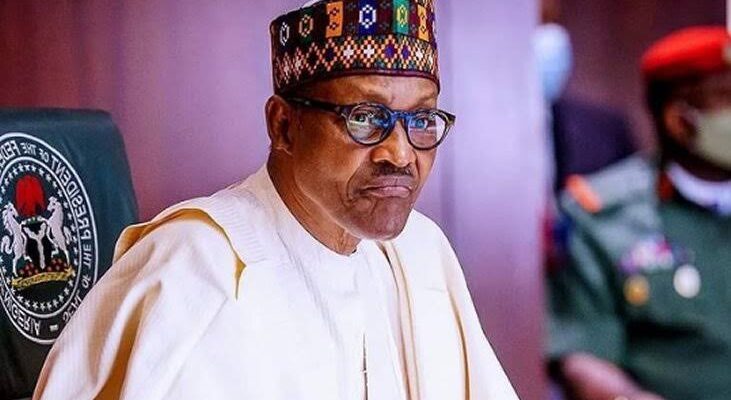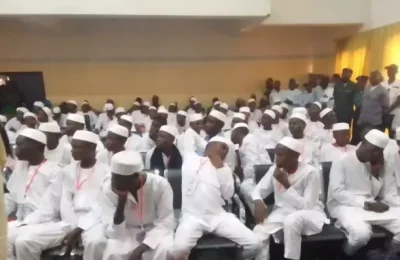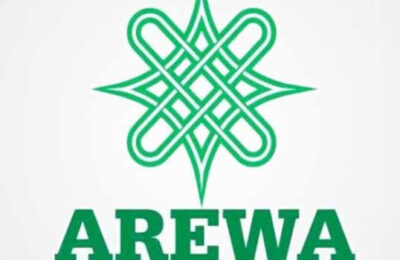Life and everything within it are transient, including power and authority. What started with hopes and high expectations in 2015 has come to an end, bringing with it lessons and leaving the people less animated and less hopeful than they were eight years ago — little wonder that Buhari’s successor will ride in on the wings of a Renewed Hope campaign. Bola Ahmed Tinubu said he would hit the ground running from Day 1, continue running on Day 2, and not relent on Day 3. As Nigerians at home and in the diaspora will strive to pick up pace in this new run, this piece marks my second and last comment on the Buhari government.
Accountability in Nigeria is comatose. What makes it not dead yet are the little efforts by concerned columnists and journalists that keep to the work of critiquing the government and holding those in power accountable, although knowing that there might be little to nothing to show for their efforts. President Muhammadu Buhari gave his farewell speech — a 38-point speech with aspects that further solidify the defiance of those in power to the truth and transparency with citizens in a we-can-do-as-we-wish move. In response, or more befittingly, as a way of signing off on writings about the past administration, I chose to write two pieces. The first focused on the most prominent promises that Buhari failed to fulfill — the promises that were the highlight of his campaign and the major reason people voted for him.
These past few days, there have been audacious claims by the government — claims of leaving Nigeria in a better state than in 2015 and fulfilling all promises made during the 2015 campaign, among other claims. In the past eight years, I have interacted with many Nigerians from different age groups and societal classes — professors, businessmen, politicians, young students; you name them. And no matter how you choose to review the Buhari government’s years in office — whether by benchmarking them against his campaign promises or comparing Nigeria in 2023 to Nigeria in 2015 — the most important way of gauging this government will be in the overall well-being of Nigerians.
The last eight years have been taxing in one way or the other for every Nigerian I have engaged during the period, and this is only a testament to the fact that the government did not succeed in making its citizens’ lives better. A lot has been said by many; a lot has been written about the achievements and failures of this government. It is why I have chosen this second piece on the unforgivable sins of the Buhari government — that is, the things that, if summed up, pushed Nigeria into the current state that it is in, regardless of whether the 2nd Niger Bridge and some railway lines have been constructed or some money paid out through the TraderMoni scheme.

The Sin of Contemptible Complacency
Complacency is perhaps the biggest sin of the Buhari government. It set the tone for the spiral and reared its head often during the two tenures of the now ex-President of Nigeria. First, it was complacency in appointing his cabinet members in 2015. For someone who rode into power on lofty promises to the people and a lot of goodwill and expectations of change, Muhammadu Buhari was slow to appoint his team members — as the swearing-in dragged on to his 6th month in office, thus adversely affecting the goodwill of foreign investors, the stock market, and the economy in general. Perhaps Buhari took his campaign mantra of “focusing on security, while Prof. Osinbajo focuses on the economy” too far, forgetting that running a government cannot be the function of just one person. This same complacency came into action in Buhari’s self-appointment as the Minister for Petroleum, a move that spelled little good for Nigeria’s petroleum affairs, as ridiculous expenditure continued in the oil sector right under the president’s nostrils.
The Sin of Deplorable Impunity
From the leadership point of view, impunity is one of the strongest problems militating against the country’s success. Under Muhammadu Buhari, impunity was displayed by the direct people in power and their family members — from the president to Mrs. Aisha Buhari, to the wife of the DSS Chief, to the APC Majority Leader from Kano State. The audacity to do as one wishes among elected officials in the country reached never-before-seen heights under Buhari. It was perhaps because the ex-president was complacent and largely unconcerned — so much so that the people knew they could get away with their deeds — thus having the perfect motivation for their impunity.
Impunity is devilish in a democracy; it goes against the foundational concepts of democracy and laughs them to scorn. It is unforgivable for those in whom the people had placed their belief and mandate to emerge as leaders and then begin to see themselves as more worthy and in an untouchable position than the electorate. The power belongs to the people in a democracy, and impunity says otherwise. The impunity under the Buhari government spilled over to his other sins — the sins of failed promises, violating court orders, and implementing policies that only made the country bleed.

The Disgraceful Sin of Rights and Law Violations
During Buhari’s tenure, there were pockets of human rights violations — both by the federal government and some state governments — for which the president and his team were complicit in their inaction. A young Nigerian was arrested for tweeting in abuse of the then First Lady, Aisha Buhari. There were arrests of outspoken media people like Daddiyata, the arrest and detainment of Agba Jalingo, the ill-treatment of Omoyele Sowore while flouting court orders for his release, the refusal to follow court orders in the case of ASUU’s grievances, Jones Abiri’s arrest and detainment, and the bullying of media houses like Premium Times, Daily Trust, AIT, and AriseTV, among others. Closer to home was the arbitrary arrest of a prominent journalist. One of the biggest things that will forever dangle above the Buhari government is the October 20, 2020, incident at the Lekki Toll Gate. The sheer number of human rights violations, arbitrary arrests, and prolonged detainment of citizens against the provisions of the law is a body of sin that no level of atonement can wash off Buhari’s eight years in office.
The Outrageous Sin of Miscalculated Policies and Wrong Implementation
There is no denying that there were instances when the Buhari government meant well for the citizens and kicked some policies into place. However, many of those policies were moribund, as they lacked a lot of things — a proper assessment of the realities of the people and whether or not the policies would succeed and a lack of a proper timeline. First was the border closure policy, for which many Nigerians will continue to blame Buhari. No matter how well-meaning the government could have been with this policy, refusing to gauge how impactful it was on the people and the need to relax it — thereby leaving it for a prolonged and unnecessarily adverse period — was catastrophic for the economy. It is foolhardy to embark on an audacious and full closure of the country’s borders when the circumstances surrounding the in-country production of food have not been perfected.
The second prominent issue was the case of the cashless policy toward the end of the Buhari government. This policy was concocted on the corridors of power — heavily distant from the realities of the average Nigerian or their plight. While the people suffered and died due to a highly unnecessary and frustrating policy, the Buhari-led government was bent on prolonging the policy to make a statement to the people. TraderMoni and N-Power have been poster names for initiatives that have been fronted as the government’s means of lifting 100 million Nigerians out of poverty, although the reality pales in comparison with that — the reality being the uneven disbursement of small and unsustainable funds to people.
In the closing days of the government, the official propaganda machine was full of the achievements of the Buhari government, especially in infrastructure. His media advisers and assistants tried to push out the scores of things that Buhari had done in eight years. Buhari himself spoke more in his last days. Some projects were the highlight of the government — after all, no matter how woefully a government has performed, it will have some things to its name.
However, in the context of where Nigeria is currently as compared to where it was or where it was headed as of 2015 (when it was adjudged one of the fastest-growing economies in the world), in the context of the promises that were made and what was eventually achieved, in the context of what Nigerians’ overall well-being is now as against 2015, in the context of how safe and secure Nigerians feel in their homes today as against 2015, in the context of how un-Nigerian Nigerians feel today as against 2015 — there is no applauding the Buhari-led government. For, it sinned. Its sins were many, and history will remember the past eight years for what they were. I am sure many readers will add to my list: the sin of corruption, the sin of insecurity, the sin of insensitivity.
When you sin, it must be followed by punishments. Buhari’s sins are reprehensible and shameful. Is the escape to Daura and onward to Niger an escape from punishment? Niger is a wise choice, with loving relations: sin-forgivers who have benefitted money from their Godfather in power. Niger is a unitary system where the president rules as a general, a fellow sinner. Farewell!







